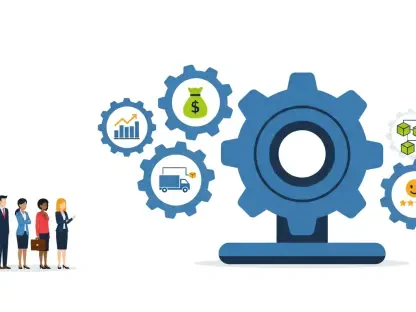In an era characterized by the rapid advancement of technology and the proliferation of complex software systems, the efficient management of vulnerabilities has never been more critical. The challenge is compounded by the sheer volume of new code being generated and integrated within existing systems daily. Consequently, ensuring robust security measures without hampering development speed is an increasingly daunting task for DevSecOps teams. This pressing need for a solution has driven the development of innovative tools that leverage artificial intelligence (AI) to streamline vulnerability management processes.
AI-Powered Data Collection and Mapping
Targeted Data Gathering for Enhanced Security
The Autonomous Vulnerability Management Platform from Opus Security initiates its process by engaging DevSecOps teams with precise inquiries about their application environments. These targeted questions are designed to gather critical data needed to map the IT environments comprehensively. By understanding the intricacies of the application environment, the platform can determine enforceable policies and identify severe vulnerabilities that need immediate attention. This initial data collection is crucial in building a robust security framework tailored to the specific needs of each application.
Once the essential data is collected, the platform’s AI agents come into play. Each agent is specialized in different facets of vulnerability management, such as security research, governance, process orchestration, remediation, and collaboration. This specialization enables the platform to process and refine the fragmented data efficiently. The reduction of noise—the irrelevant or low-priority information typical of legacy platforms—significantly enhances the focus on critical vulnerabilities, streamlining the entire process. This meticulous approach allows DevSecOps teams to allocate resources more effectively, identifying and addressing severe issues promptly without getting bogged down by less critical concerns.
Using AI to Prioritize and Automate Responses
AI’s ability to prioritize vulnerabilities based on severity is a game-changer for vulnerability management. Traditional methods, which often involve manual assessment and triage of vulnerabilities, are not only time-consuming but also prone to human error. AI, on the other hand, can rapidly analyze the collected data, cross-reference it with known security threats, and prioritize responses accordingly. This prioritization is crucial in an environment where the volume of vulnerabilities can be overwhelming, ensuring that the most dangerous threats are addressed first.
In addition to prioritization, the platform’s AI agents aim to automate several aspects of the remediation process. By automating routine tasks, AI reduces the workload on DevSecOps teams, allowing them to focus on more complex issues that require human intervention. For instance, AI can apply patches and monitor their effectiveness without human input, ensuring quicker and more reliable resolution of security threats. This combination of prioritization and automation optimizes the vulnerability management process, enhancing efficiency and effectiveness.
Future of AI in DevSecOps Vulnerability Management
Autonomous Application of Security Patches
The future vision for tools like the Autonomous Vulnerability Management Platform includes the goal of autonomously applying DevSecOps-validated patches. This marks a significant leap forward in streamlining vulnerability remediation processes. Autonomously applied patches would mean that once a vulnerability is identified and a patch is validated by the DevSecOps team, the AI system could implement the patch across all affected systems without human intervention. This capability not only accelerates the patching process but also ensures consistency and accuracy, reducing the chances of human error that can occur during manual patch implementations.
Opus Security CEO Meny Har emphasized the importance of AI in managing the large volume of known vulnerabilities within extensive codebases. He pointed out that the traditional inability to address these vulnerabilities promptly often leads to recurring security incidents. By delegating routine and repetitive tasks to AI, DevSecOps teams are better positioned to focus on strategic decision-making and complex problem-solving. Addressing vulnerabilities is no longer just about speed but also about precision and efficiency.
Adapting to the Growing Complexity of Software
In an era marked by rapid technological advancements and the proliferation of complex software systems, the effective management of vulnerabilities has become absolutely critical. This challenge is further intensified by the massive amount of new code being generated and integrated into existing systems on a daily basis. As a result, ensuring robust security measures without slowing down development speed is an increasingly difficult task for DevSecOps teams. The urgent need for a solution has spurred the development of innovative tools that harness the power of artificial intelligence (AI) to streamline vulnerability management processes. These AI-driven tools automate the detection and remediation of potential security issues, allowing teams to focus on more strategic tasks. Moreover, AI can help predict vulnerabilities before they become problematic, thereby preventing security breaches. As the complexity of software systems continues to grow, the integration of AI into vulnerability management processes will become increasingly indispensable for maintaining secure, efficient, and agile development environments.









